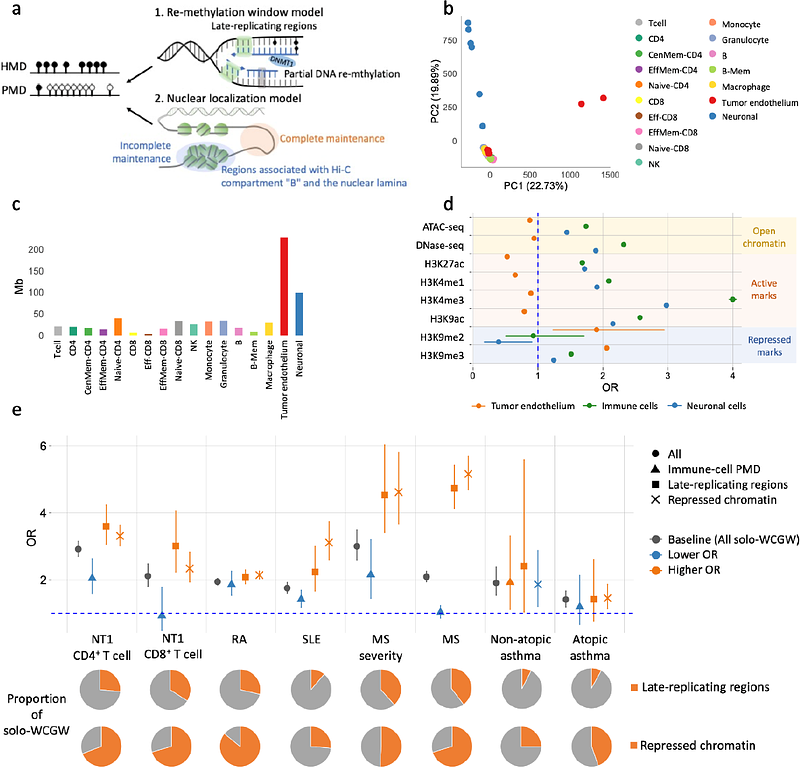Passive and active demethylation in immune diseases with proliferation driving global hypomethylation

Passive and active demethylation in immune diseases with proliferation driving global hypomethylation
Shimada, M.; Omae, Y.; Hitomi, Y.; Honda, Y.; Kodama, T.; Honda, M.; Tokunaga, K.; Miyagawa, T.
AbstractGlobal hypomethylation is frequently reported in immune-mediated diseases; however, its extent and underlying mechanisms are largely unknown. By examining seven immune-mediated diseases, we found that most exhibited global hypomethylation, particularly at CpGs in the solo-WCGW context -- sequences lacking neighboring CpGs (W = A/T) -- which are prone to passive demethylation during cell division. The hypomethylated solo-WCGW CpGs were predominantly located in transcriptionally repressed regions, potentially reflecting increased immune cell proliferation. Meanwhile, the majority of CpGs demethylated in response to TNF- and TGF-{beta} were located in transcriptionally active regions. Focusing on hypomethylated non-solo-WCGW CpGs in active regions enabled the identification of key immune-related transcription factors, such as BATF in narcolepsy and multiple sclerosis. Unlike conventional epigenome-wide association studies analyzing all CpGs, our classification-based approach, excluding CpGs susceptible to passive demethylation, could help identify CpGs more relevant to disease pathogenesis and may offer a new standard framework for future analyses.